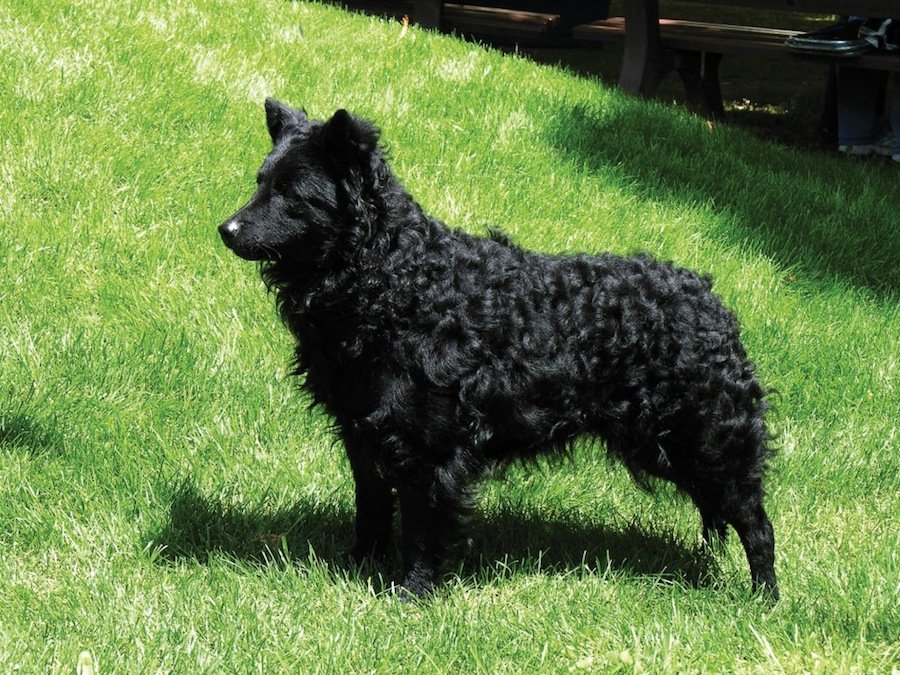Are you considering adding a Mudi breed dog to your family? If so, you’re in for a treat! The Mudi is a rare breed that originated in Hungary and is known for its intelligence, agility, and loyalty. These dogs are highly trainable and excel in various activities such as obedience, agility, and herding. They are also affectionate and protective of their families, making them excellent companions. However, before making the decision to bring a Mudi into your home, it’s important to learn more about their temperament, characteristics, and care requirements.
Breed Category: Herding
Country of Origin: Hungary
Average Size:38-47 cm
Average Weight:8-13 kg
Average Life Span: 12-14 years
Grooming Requirements: Moderate
Exercise Requirements:High
History and Origin
The Mudi is a Hungarian breed of dog that is known for its intelligence, agility, and loyalty. The breed has a long history that dates back to the 19th century when it was first developed by Hungarian shepherds. The Mudi was originally bred to be a working dog, and it was used to herd sheep and cattle. Over time, the breed has become popular as a companion dog, and it is now recognized by the Kennel Club in the UK.
The exact origin of the Mudi is not known, but it is believed to have been developed from a mix of local Hungarian breeds, including the Puli, the German Spitz, and the Hungarian herding dog. The breed was first recognized in Hungary in the 1930s, and it was officially recognized by the FCI (Fédération Cynologique Internationale) in 1966.
The Mudi is a medium-sized dog that typically weighs between 18 and 29 pounds. It has a muscular build and a thick, curly coat that can be black, brown, white, or a combination of these colors. The breed is known for its high energy levels and its ability to learn quickly. Mudis are also very loyal to their owners and make excellent family pets.
In Hungary, the Mudi is still used as a working dog, and it is often used to herd sheep and cattle. The breed is also used in search and rescue operations, as well as in police work. Mudis are highly trainable and excel in obedience and agility competitions. They are also known for their ability to perform tricks and their love of play.
Despite its popularity in Hungary, the Mudi is still a relatively rare breed in the UK. However, it is gaining in popularity as more people discover its many positive qualities. The breed is known for its intelligence, loyalty, and high energy levels, and it makes an excellent companion for active families. Mudis require regular exercise and mental stimulation, and they thrive in homes where they are given plenty of attention and affection.
In conclusion, the Mudi is a fascinating breed of dog with a rich history and a bright future. Its origins can be traced back to the 19th century when it was first developed by Hungarian shepherds. Today, the breed is known for its intelligence, agility, and loyalty, and it is used
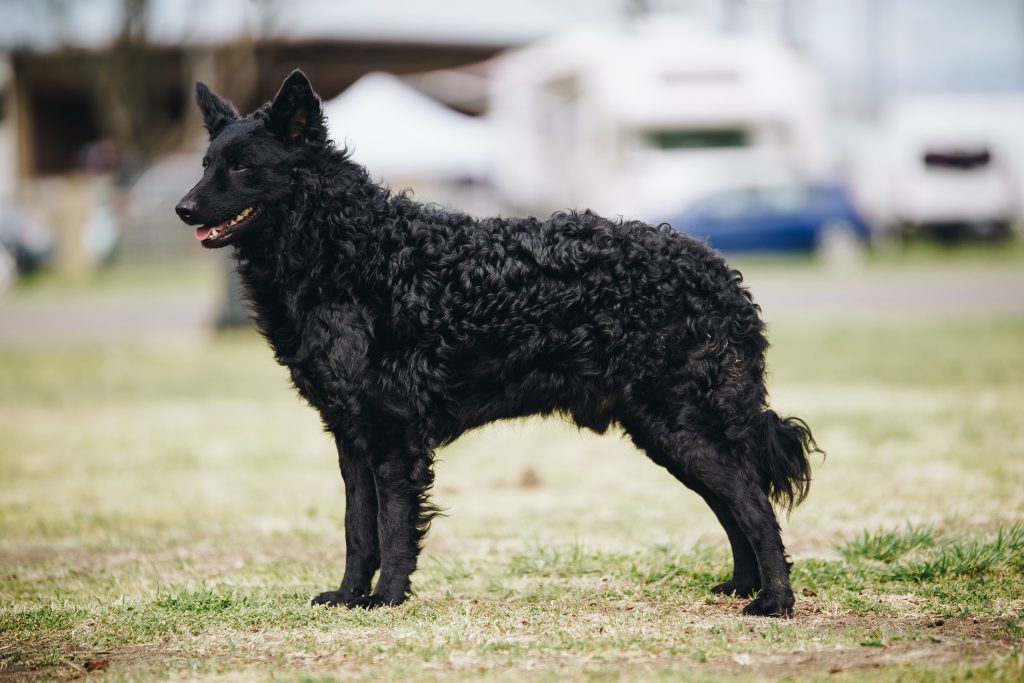
Size and Breed Category
The Mudi is a medium-sized dog breed that originated in Hungary. They are known for their athletic build and agile movements, making them excellent working dogs. The breed typically weighs between 18-29 kg and stands at a height of 38-47 cm at the shoulder. Mudis have a muscular body with a broad chest and a strong, straight back. Their head is wedge-shaped with a slightly rounded skull and a well-defined stop. They have medium-sized, triangular ears that are set high on their head and a long, tapered tail that is carried low. Mudis have a short, dense coat that comes in a variety of colours, including black, brown, white, and grey.
The Mudi is classified as a herding dog breed, but they are also used for hunting and as a companion animal. They are highly intelligent and trainable, making them a popular choice for dog sports such as agility and obedience. Mudis are known for their high energy levels and need for regular exercise, so they are best suited for active families who can provide them with plenty of physical and mental stimulation. They are loyal and affectionate towards their owners but can be reserved with strangers. Mudis are a relatively rare breed outside of Hungary, but they are gaining popularity in other parts of the world due to their versatility and unique appearance.
Fur Length and Colour
The fur of the Mudi is typically medium in length, with a dense undercoat and a slightly wavy topcoat. The fur is not overly long, but it is long enough to provide some protection from the elements. The texture of the fur is coarse and slightly wiry, which helps to repel dirt and water. The Mudi’s fur is also quite thick, which helps to keep them warm in colder weather.
The Mudi can come in a variety of colours, including black, brown, white, and gray. Some Mudis may also have brindle or merle patterns. The coat colour can vary from solid to a combination of colours. The most common colour for the Mudi is black, but brown and white are also quite common. The colour of the Mudi’s fur can also change as they age, with some Mudis becoming lighter or darker as they get older.
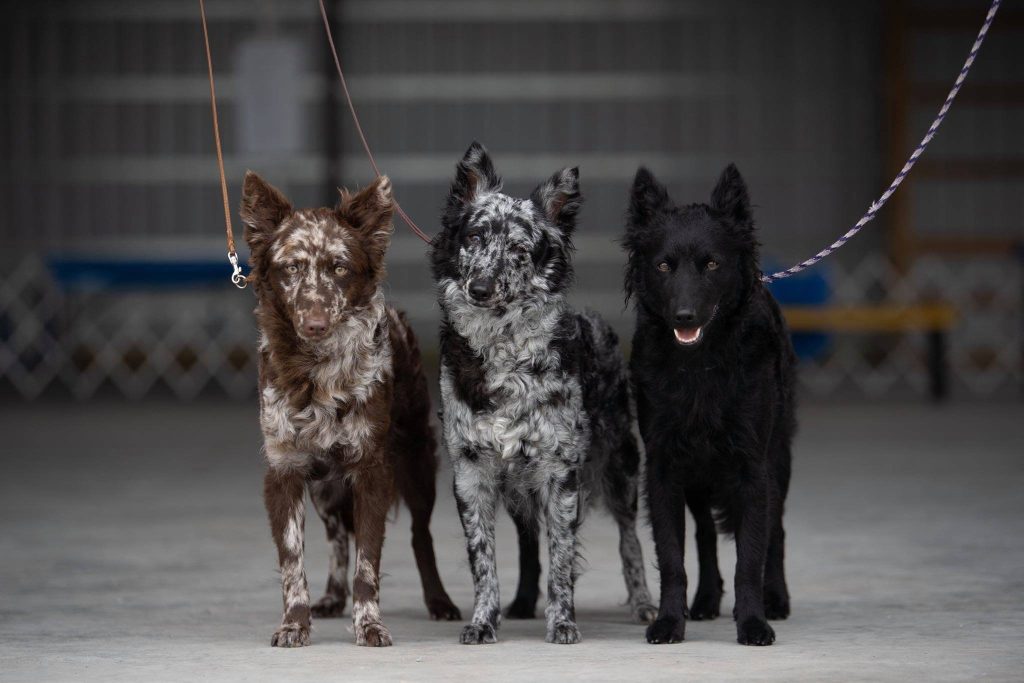
Termperament and Trainability
The Mudi is a highly intelligent and energetic breed of dog that requires plenty of mental and physical stimulation to stay happy and healthy. They are known for their strong work ethic and are often used as working dogs in a variety of roles, including herding, hunting, and search and rescue. Mudis are also highly trainable and respond well to positive reinforcement techniques, making them a popular choice for obedience and agility competitions. However, they can be stubborn at times and require a firm but gentle hand when it comes to training. Overall, the Mudi is a loyal and affectionate companion that thrives on human interaction and makes a great addition to any active household.
In terms of temperament, the Mudi is a confident and independent breed that can be wary of strangers. They are highly protective of their family and make excellent watchdogs, but can be prone to barking if not properly socialized. Mudis are also known for their high energy levels and require plenty of exercise and playtime to prevent destructive behavior. Despite their lively nature, they are also affectionate and enjoy spending time with their owners. Mudis are not recommended for first-time dog owners or those who are unable to provide them with the attention and exercise they require. With the right training and socialization, however, they can make a wonderful addition to an active and loving home.
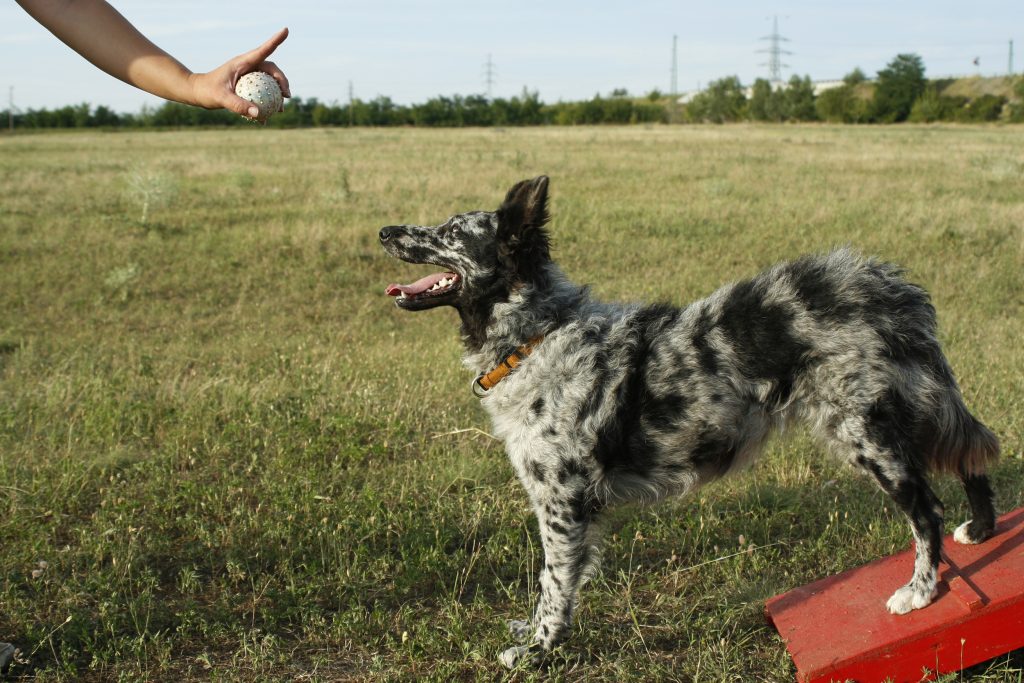
Known Health Conditions
The Mudi is a breed of dog that is known to be generally healthy. However, like all breeds, they are prone to certain health conditions. One of the most common health issues that Mudis face is hip dysplasia. This is a condition where the hip joint does not develop properly, leading to pain and discomfort for the dog. Mudis can also suffer from eye problems such as cataracts and progressive retinal atrophy, which can lead to blindness. Additionally, they may be prone to allergies and skin irritations, which can cause itching and discomfort. It is important for Mudi owners to be aware of these potential health issues and to take their dogs for regular check-ups with a veterinarian.
Another health condition that Mudis may face is epilepsy. This is a neurological disorder that can cause seizures and other symptoms. While the exact cause of epilepsy in dogs is not fully understood, it is thought to be related to genetics. Mudis may also be prone to certain types of cancer, such as lymphoma and hemangiosarcoma. These types of cancer can be difficult to treat and may require aggressive treatment such as chemotherapy. Finally, Mudis may be prone to dental problems such as gum disease and tooth decay. Regular dental care, including brushing and professional cleanings, can help prevent these issues from developing.
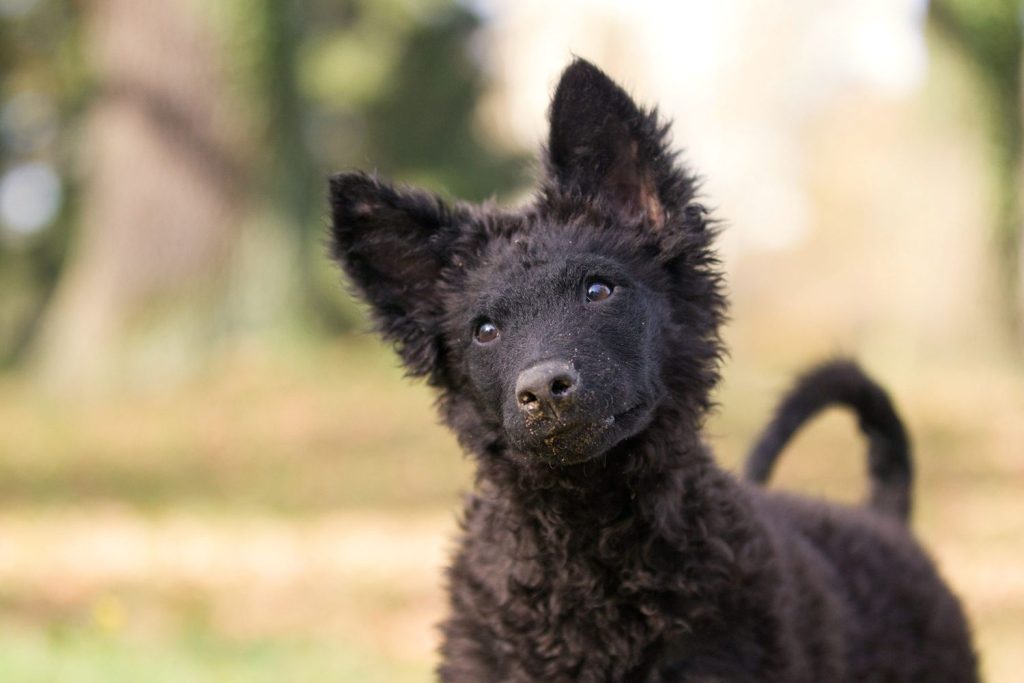
Openness to Strangers
Mudis are known for their welcoming nature towards strangers. They are a breed that is naturally curious and friendly, making them great companions for those who enjoy meeting new people. Mudis are not afraid to approach strangers and will often greet them with a wagging tail and a friendly bark. They are also very social animals and enjoy being around people, making them great pets for families with children. Mudis are not aggressive towards strangers and are generally very easy-going, making them a popular choice for those looking for a friendly and sociable dog.
Mudis are also known for their adaptability to new environments and situations. They are a breed that is very versatile and can easily adjust to different living conditions. Mudis are comfortable living in both urban and rural environments and are not easily stressed by changes in their surroundings. They are also very intelligent and can quickly learn new commands and tricks, making them great pets for those who enjoy training their dogs. Mudis are also very loyal and affectionate towards their owners, making them a great choice for those looking for a loving and devoted companion.
Playfulness Level
The Mudi is a highly energetic and playful breed of dog that requires plenty of exercise and mental stimulation to keep them happy and healthy. They are known for their love of play and their ability to learn new tricks and games quickly. Whether it’s playing fetch, going for a run, or participating in agility training, the Mudi is always up for a good time. They are also highly social animals and enjoy spending time with their owners and other dogs.
Despite their high energy levels, the Mudi is also known for their affectionate and loyal nature. They are a breed that thrives on human companionship and are happiest when they are part of a loving family. They are also highly intelligent and respond well to positive reinforcement training methods. With the right training and socialization, the Mudi can make an excellent family pet and companion for those who are willing to put in the time and effort to meet their needs.
Suitability as a Pet for Children
Mudi dogs have a lively and energetic personality, making them a great choice for active families with children. They are highly intelligent and trainable, which means they can be easily taught to follow commands and perform tricks. Mudis are also very loyal and affectionate towards their owners, making them great companions for children who want a furry friend to play with. However, they do require regular exercise and mental stimulation to keep them happy and healthy. Mudis are also known for their protective nature, which means they may be wary of strangers and other animals. Overall, the Mudi can make a wonderful pet for children who are willing to put in the time and effort to properly care for them.
Exercise Needs
Mudis require a moderate amount of exercise to maintain their physical and mental health. As an active breed, they enjoy daily walks and runs, as well as engaging in activities such as agility training and obedience competitions. Mudis also benefit from regular playtime and interactive games with their owners, which can help to prevent boredom and destructive behavior. It is important to note that Mudis have a high prey drive and may chase small animals, so they should always be kept on a leash or in a secure, fenced area during outdoor activities.
In addition to physical exercise, Mudis also require mental stimulation to prevent boredom and anxiety. They are intelligent dogs that enjoy learning new tricks and commands, and respond well to positive reinforcement training methods. Puzzle toys and interactive games can also provide mental stimulation and help to prevent destructive behavior. Mudis thrive on human interaction and enjoy spending time with their owners, so regular training sessions and playtime can help to strengthen the bond between dog and owner. Overall, Mudis require a balanced approach to exercise and mental stimulation to maintain their health and happiness.
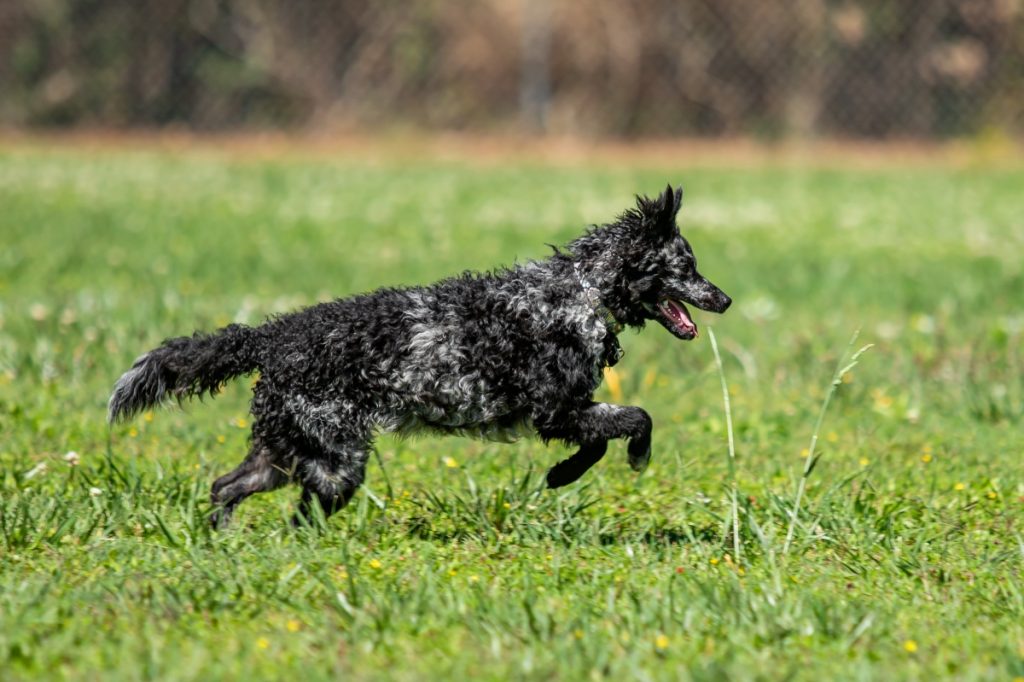
Suitability for a Multi-Pet Family
Mudis have been known to coexist peacefully with other animals in the household. They are generally friendly and sociable, and can get along well with cats and other dogs. However, as with any breed, early socialization and training is important to ensure that they learn to interact appropriately with other pets. It is also important to supervise interactions between Mudis and other animals, especially during the initial introduction period. Overall, Mudis can make great companions for other pets in the household.
Housing Requirements
Mudis require a living space that is large enough to accommodate their active nature. They need a minimum of 30 square meters of space to move around freely. The space should be well-ventilated and have enough natural light. Mudis are known to be active dogs, so they require a lot of exercise. A house with a garden or a yard is ideal for them. The garden should be fenced to prevent them from wandering off. Mudis are social dogs, so they enjoy being around people. Therefore, their living space should be close to their owners’ living area.
Mudis require a comfortable sleeping area that is warm and dry. They prefer a soft bed that is elevated from the ground. The sleeping area should be located in a quiet part of the house, away from any distractions. Mudis are known to be clean dogs, so their sleeping area should be cleaned regularly. They also require a feeding area that is separate from their sleeping area. The feeding area should be clean and well-ventilated. Mudis require fresh water at all times, so their water bowl should be refilled regularly.
Summary
Mudis have a lively and energetic personality, making them a great choice for active families who enjoy spending time outdoors. They are highly intelligent and require plenty of mental stimulation to prevent boredom. Mudis are also known for their loyalty and affection towards their owners, making them a great companion for those who are looking for a devoted pet. However, their high energy levels and need for mental stimulation mean that they may not be suitable for all households, particularly those with young children or elderly individuals who may struggle to keep up with their energetic nature.
Mudi Dog FAQS
Yes, Mudis are highly trainable and excel in obedience and agility training.
Yes, Mudis are great with children and make excellent playmates.
No, Mudis are active dogs and require a lot of space to run and play. They are better suited for homes with a yard.
Mudis are generally healthy, but they may be prone to hip dysplasia and eye problems.
No, Mudis have a low shedding coat and require minimal grooming.
Mudis have a lifespan of 12-14 years on average.
A Mudi needs at least 1-2 hours of exercise daily.
A Mudi can grow up to 47-52 cm in height.
Yes, Mudi is a great family pet as they are loyal, intelligent, and protective.
The average weight of a Mudi is between 8-15 kg.
